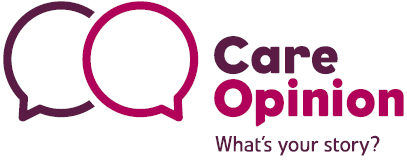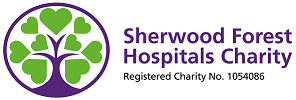Therapy Services
The role of the Therapy Services department is to provide high-quality, effective, integrated physiotherapy, occupational therapy, and orthotic interventions to facilitate health gain and maximise functional ability for both inpatients and outpatients.
The services the department offer are:
- Physiotherapy
- Occupational Therapy
- Orthotics
- Wheelchair service
Physiotherapy
Rheumatology physiotherapy
We provide specialist Physiotherapy input for patients living with Rheumatic conditions. Our aim is to develop patients understanding of their condition whilst equipping them with coping strategies and exercises to manage their symptoms.
Our treatments avenues include:
- Educational advice regarding your condition
- Pain and flare management strategies
- Walking aid assessment
- Tailored home exercise programmes, gym sessions or exercises groups
- Manual Therapy – as appropriate
- Hydrotherapy – as appropriate
- Onward referral – Rheumatology Occupational Therapy, Orthotics, GP exercise referral schemes etc
Due to the complex nature of Joint Hypermobility Syndrome and EDS-type Hypermobility, many people receive their diagnosis via a Rheumatology Consultant. We therefore offer advice to this patient group upon initial diagnosis. Further management may be explored via a local musculoskeletal service or a community pain team.
We can also offer Physiotherapy input for musculoskeletal conditions that may coincide with rheumatological conditions. This service is only accessible for patients who have a formal rheumatological diagnosis and remain under the care of a Rheumatologist at Sherwood Forest Hospitals.
Pelvic health physiotherapy
We have a dedicated, friendly physiotherapy team available to provide both in and outpatient services within the maternity, gynaecology and urology specialisms.
We accept referrals from GPs, consultants and midwives and treat a wide range of conditions including:
- urinary incontinence
- pelvic organ prolapse
- postnatal recovery
- antenatal aches and pains
- pelvic floor rehabilitation
- bowel incontinence
- sexual dysfunction
- post-operative recovery
- support following a perineal birth injury
Our outpatient clinics run at both King’s Mill and Newark hospitals, and depending on your symptoms, you may be offered symptom-specific advice to help you manage your symptoms, group education and exercise sessions, or a one-to-one assessment with a physiotherapist.
Currently pregnant or had your baby within the past six months? Visit our pelvic health physiotherapy page for lots of useful advice about pelvic health conditions and further details about the support on offer.
Oncology physiotherapy
Following cancer and cancer treatments, patients may experience a range of difficulties, including muscular and joint problems, pain or stiffness. These may be as a result of treatments such as surgery or radiotherapy.
Our physiotherapists help patients with any type of cancer, at any stage of their cancer journey. They will assess and provide an individual home exercise plan to help patients regain strength and movement, and reduce pain. When appropriate, they may provide hydrotherapy.
Evidence from scientific research shows that regular exercise carried out before, during, and after cancer treatment is almost always beneficial and provides a range of health benefits. Our physiotherapists can provide advice and support on safe exercise.
As well as individual physiotherapy, our physiotherapists also run a group-based exercise and education programme called ‘Spring into Action,’ where patients can be supported getting back to a manageable level of exercise under supervision in our gym.
Occupational Therapy
Rheumatology Occupational Therapy Service
Rheumatology is a branch of medicine devoted to the diagnosis and management of disorders whose common feature is inflammation of the bones, muscles, joints, and internal organs. Rheumatology covers more than 100 different complex diseases, collectively known as rheumatic diseases, which include many forms of Rheumatoid Arthritis as well as Lupus and Sjögren's syndrome.
Many difficulties may arise following a Rheumatology diagnosis, and these may include:
- Mobility issues
- Pain, stiffness, reduced range of movement and muscle weakness
- Management of personal care and activities of daily living
- Home management
- Establishment and maintenance of relationships
- Career development and maintenance of social roles
- Adjustment to living with pain and fatigue
- Depression, anxiety, stress, and feeling low in mood
The foundation for Occupational Therapy Treatment is based on patient education that promotes Self-management.
Self-management is about learning and practicing the skills necessary to carry out an active and emotionally satisfying life in the face of lifelong illness. We can provide the following Rheumatology Occupational Therapy interventions:
- Activities of Daily Living advice and education
- Home and task modifications to promote independent functioning
- Joint protection, ergonomic advice, energy conservation training and education
- Hand Assessment, provision of hand exercise programmes, splinting and hand function advice
- Stress management including awareness and relaxation techniques training
- Fatigue and pain management, including pacing skills
- Work advice / vocational rehabilitation / support with barriers to higher education
- Supporting access to life-enriching hobbies and activities
- Acceptance and mindset in approach to living with a lifelong, painful disease
- Fatigue Education Programme for people with Inflammatory Arthritis
Referral to Rheumatology Therapy Services is via the Rheumatology Consultants, Nurse Specialists and our Therapy colleagues. We also accept referrals from GPs for patients who have a formal diagnosis of Inflammatory Arthritis.
Trauma and Orthopaedic Occupational Therapy
Trauma and Orthopaedic Occupational Therapy is split into two dimensions: Trauma and Elective.
Our trauma wards aid the recovery of people with an orthopaedic injury, usually received as a result of some form of trauma – for example, a fall, road traffic collision, or sporting injury.
Our patients can expect to receive therapy interventions that provide a combination of rehabilitation and the facilitation of aids to enable people to be as independent and as safe as possible on discharge. Our typical assessments include those of transfers (how a person will transfer on and off furniture/toilet) and “Activities of Daily Living” (commonly referred to as “ADLs”).
We will ensure that a person can complete vital tasks such as preparing drinks and meals, and getting washed and dressed. If these cannot be achieved independently, we can make recommendations and signpost to other services to gain support or further rehabilitation.
Our elective ward assists people undergoing elective orthopaedic surgery. This is a planned surgery usually as a result of a chronic condition causing pain that impacts a person’s function, for example, arthritis. The most common surgeries include hip and knee replacements, although we do work with people undergoing other types of elective orthopaedic surgery.
Our patients undergoing hip or knee replacement surgery will be invited to attend an information group in clinic 10 on a Wednesday afternoon before their surgery. This is a presentation and accompanying video delivered to patients by the Physiotherapy and Occupational Therapy team, informing patients on what to expect from our therapy service and how patients can prepare for their surgery and aid their recovery.
Orthotics
Orthotics is a profession and the science that deals with the use of specialised mechanical devices to support or supplement weakened or abnormal joints or limbs.
The Orthotist’s role is to assess and provide an external orthosis or device to an individual to:
- Improve mobility
- Relieve pain
- Slow the rate of a disease or condition
- Improve quality of life
The Orthotic service provides both an in and outpatient service across King’s Mill and Newark hospitals. In addition, we provide outreach clinics to Mansfield Community Hospital and Portland Training College. We provide an in-house service and directly employ our own HPC-registered Orthotists and workshop technicians.
Some orthoses are ready-made or ‘off the shelf', but many are specifically made to the individual patients’ needs and requirements. These then have to be ‘made to order’.
We have a modern and ‘state of the art’ workshop at King’s Mill Hospital, and employ skilled technicians to make up many of the orthoses on-site. This is a unique position for an NHS Trust and makes the service we provide smoother, with a faster turnaround for items made and tailored for patients.
Walking aid return and reuse scheme
Sherwood Forest Hospitals safely refurbishes and reuses metal walking aids that are no longer needed. This can reduce the carbon footprint of manufacturing new walking aids.
We accept:
- Metal walking sticks
- Metal Crutches
- Walking frames.
How to return
Please return metal walking aids to the drop-off points at one of our hospitals listed below. We will also accept metal walking aids issued by other healthcare providers.
If you have any doubts about when to return your walking aid, please ask at your next clinic appointment.
If your walking aid is broken or faulty, please contact the therapy department you received it from to arrange returning and replacing it.
Sherwood Forest Hospitals Walking aid drop-off locations:
- King’s Mill Hospital, Clinic 10 (Therapy Services) or main entrance. Accessible 24/7.
- Mansfield Community Hospital Rehab Unit. Accessible Monday to Friday, 8am to 4pm.
- Newark Hospital, Byron House. Accessible Monday to Friday, 8am to 4pm.
Therapy Services
Location
King’s Mill Hospital:
Therapy services, Clinic 10.
Orthotic services, Clinic 2.
Nearest car park
Car park 1 (main visitor car park)Opening hours
Therapy services: 8am to 5pm
Orthotic services: Monday to Thursday, 8am to 4.30pm, Friday 8am to 4pm.
Call
Therapy services: 01623 622515, extension 3221
Oncology physiotherapy: 01623 672384
Orthotic services: 01623 676162
Therapy services: sfh-tr.therapyservices@nhs.net
Orthotic services: sfh-tr.Orthotics@nhs.net





